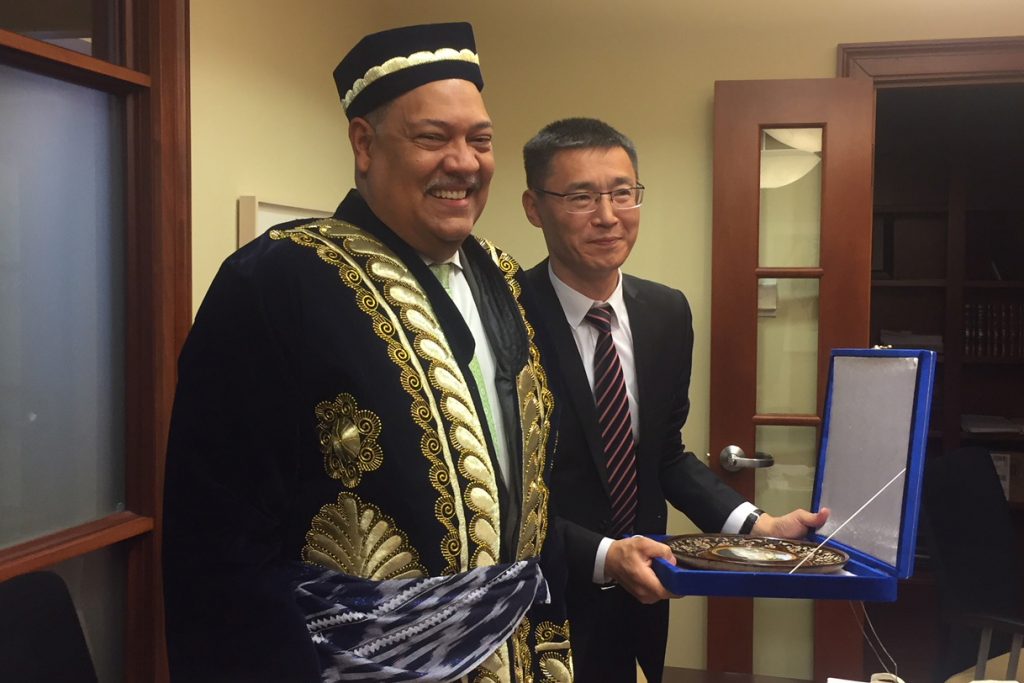As the New York Times reported on April 1, Uzbekistan appears to be moving slowly toward a less authoritarian system of governance. That shift is naturally having an impact on the nation’s legal sector. Boston College Law School has been facilitating that shift in recent years through initiatives to support Uzbekistan’s legal community. The endeavor is part of BC Law’s longstanding commitment to international engagement and social justice.
In close collaboration with Regional Dialogue, an NGO based in Slovenia, and Hon. Robert J. Cordy, a retired justice of the Massachusetts Supreme Judicial Court, the Law School has undertaken several important rule of law projects in Uzbekistan.
Dean Vincent Rougeau, BC Law’s Office of International Programs, and BC Law faculty have traveled to Uzbekistan to consult with members of the Uzbek judiciary, prosecution, and defense bar, as well as with the rector, deputy rector, faculty, and students of Tashkent State University of Law (TSUL) and conducted numerous training programs. These trainings have included professional development programs for prosecutors, defense attorneys, and judges, as well as faculty development programs. BC Law played a key role in establishing a legal clinic within TSUL to serve the needs of indigent clients.
On September 27, 2017, Dean Rougeau traveled to Uzbekistan. There he met with US Ambassador to Uzbekistan Pamela L. Spratlen, high-ranking officials of the Uzbek government, and the rector of TSUL, Esemurat S. Kanyazov. During the visit, Dean Rougeau and Rector Kanyazov formalized a Memorandum of Understanding between Boston College Law School and Tashkent State University of Law designed to facilitate their continuing collaborative engagement.
Photo: BC Law Dean Vincent Rougeau, left, with Tashkent State University of Law Rector Esemurat S. Kanyazov


